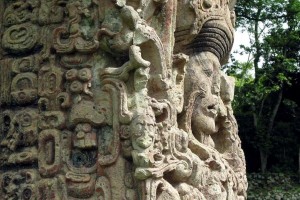Nothing Lasts Forever Environmental Discourses on the Collapse of Past Societies

Past societies, accessed primarily through archaeology and historical texts, form a rich and important dataset for increasing understanding of what makes societies sustainable and how and why they come to an end. In this research, Project Associate Professor Guy D. Middleton at the University of Tokyo’s College of Arts and Sciences reviews current research on collapse and shows how mixed messages about collapse and complex historical and social processes of change often arise through the use of ambiguous terms and a lack of clear definitions. He also identifies three dominant, often apocalyptic, paradigms of collapse, found in a range of specialist archaeological, scientific and popular literature, based around notions of climate change, anthropogenic environmental damage, and neocatastrophism. These do not simply represent the reality of past historical change and collapse, but reflect the continuing power of the narratives themselves.

King Uaxaclajuun Ub'aah K'awiil. Stela B, Copán
(Wikimedia Commons)
Studying sustainability through collapse requires a critical attitude to archaeological and historical knowledge. Many well-known examples of past collapses are questioned by archaeologists not only in terms of how they can be explained, but in what exactly ‘collapse’ was; it seems rarely to have been the sudden catastrophic population loss implied by comparisons with ecological collapse and in popular apocalyptic collapse narratives. The Classic Maya collapse, for example, has been attributed to numerous causes, but rather than a single sudden event, such as a megadrought or famines with massive mortality, which caused the Maya to disappear, ‘the collapse’ was a complex two to three centuries of political collapses, ideological, social, and economic changes.
Why is this important? This research goes beyond mere historical revisionism, but in fact provides a cautionary tale about using historical examples as data in a simple way ? especially for thinking about the future. Attitudes to environmental issues and issues of social change are influenced by ongoing myths of collapse, but these often apocalyptic narratives oversimplify the history, or get it wrong. Archaeology reveals that past collapses often primarily affected the rulers and elites in hierarchically stratified societies. Reading collapse primarily as an externally caused or environmental harm ultimately directs attention away from salient issues of social justice and change driven from the interaction of people within and between societies as has been seen in the Arab Spring movements.
Paper
Middleton, G. D.,
“Nothing Lasts Forever: Environmental Discourses on the Collapse of Past Societies”,
Journal of Archaeological Research 20 (2012): 257-307 doi: 10.1007/s10814-011-9054-1.
Article link







